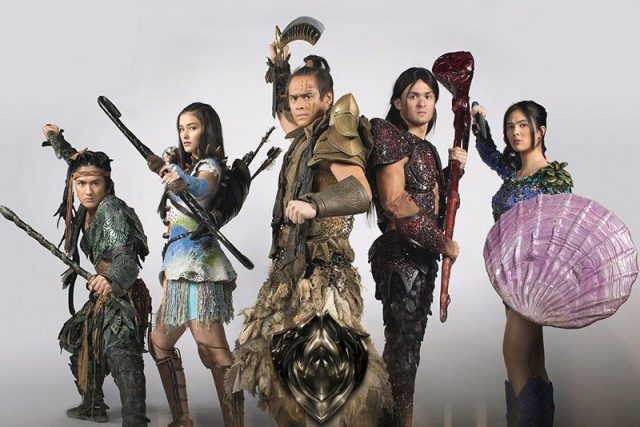
Controversy seems to to follow ABS-CBN’s newest fantaserye “Bagani” despite its popularity. Prior to Holy Week, the show attracted another slew of criticisms over its supposed misuse of a local language.
Some people on social media laughed at the incantation “mekeni mekeni tugtug do re mi” from the show’s March 21 episode for apparently using Kapampangan phrase “mekeni,” which means “come here,” out of context.
Social media users proposed some hilarious interpretations of the line.
*clears throat*
Graduates, take and remember these words as you proceed to the next chapter of your lives.
MEKENI MEKENI DUG DUG DO RE MI. Thank you.
(and the crowd went crazy) pic.twitter.com/CM0qjR3KOx— CesTheBlue (@BaddieFrancis98) March 28, 2018
sana kahit isang “Mekeni mekeni dugdug doremi” lang, magaling na din puso ko.
— G’s (@ElDelacruzzz) March 26, 2018
GUYS MAY NALAMAN AKO!
Mekeni mekeni dugdug do re mi was actually a form of bullying. My aunt, who is a Kapampangan, got into fights when she was young kasi inaasar s’yang with this chant.
— Eli James (@elijahjms) March 27, 2018
The show’s characters inspired the use of the phrase as a mock “prayer” for anything from their love life to their grades in school.
In the episode, the babaylan played Dimples Romana recited “mekeni mekeni tugtug do re mi” three times to heal Lakas, a main character of the show, played by Enrique Gil.
Poking fun at the scenes did not stop on social media. Even “Showtime” host Vice Ganda mimicked the way the babaylan (shaman) recited the phrase.
Others aren’t as amused
A Kapampangan teacher from the Alternative Learning Center for Agricultural and Livelihood Development, a school lumads, also cried foul on Twitter.
“As a Kapampangan, it’s infuriating to know that our language is being laughed at. They mix the words tugtug do re mi to make it sound exotic,” Kenneth Cadiang, the teacher said.
ALCADEV itself made a statement on Twitter that the healing ritual shown on “Bagani” was also inaccurate.
Lumad groups have chants or songs in their everyday activities or in their sacred rituals, one of which is a healing ritual.
“The ritual called Limpas of the lumads is done to heal the sick. It’s not ‘mekeni mekeni’ that is recited here, but carefully considered words that mirror our culture,” ALCADEV said.
The post also added that if writers have researched and respected Bagani, the culture that the title of the show seems to refer to, they shouldn’t include scenes that insult the culture of indigenous groups.
‘Bagani’ not alone with ‘Aloha’
The misuse of a local language for a show could also be seen in Hollywood movies.
In 2015, a romantic-comedy movie titled, “Aloha,” was heavily criticized for its alleged misuse of the Hawaiian term “aloha” in its title.

In this case, “aloha” means “greetings” or “hello” in Hawaii. Movie critics noted that despite the title, no Hawaiian culture was shown throughout the movie.
An American author Janet Mock said the word has been “bastardized and diminished” over the years.
“The ongoing appropriation and commercialization of all things Hawaiian only makes it clearer as to why it is inappropriate for those with no ties to Hawaii, its language, culture and people to invoke the Hawaiian language,” Mock said a blog post.
The movie, which starred A-listers such as Rachel McAdams, Bradley Cooper and Emma Stone, also received major backlash for its casting. Its director, Cameron Crowe, apologized for casting Stone as a mixed race character in the film.









